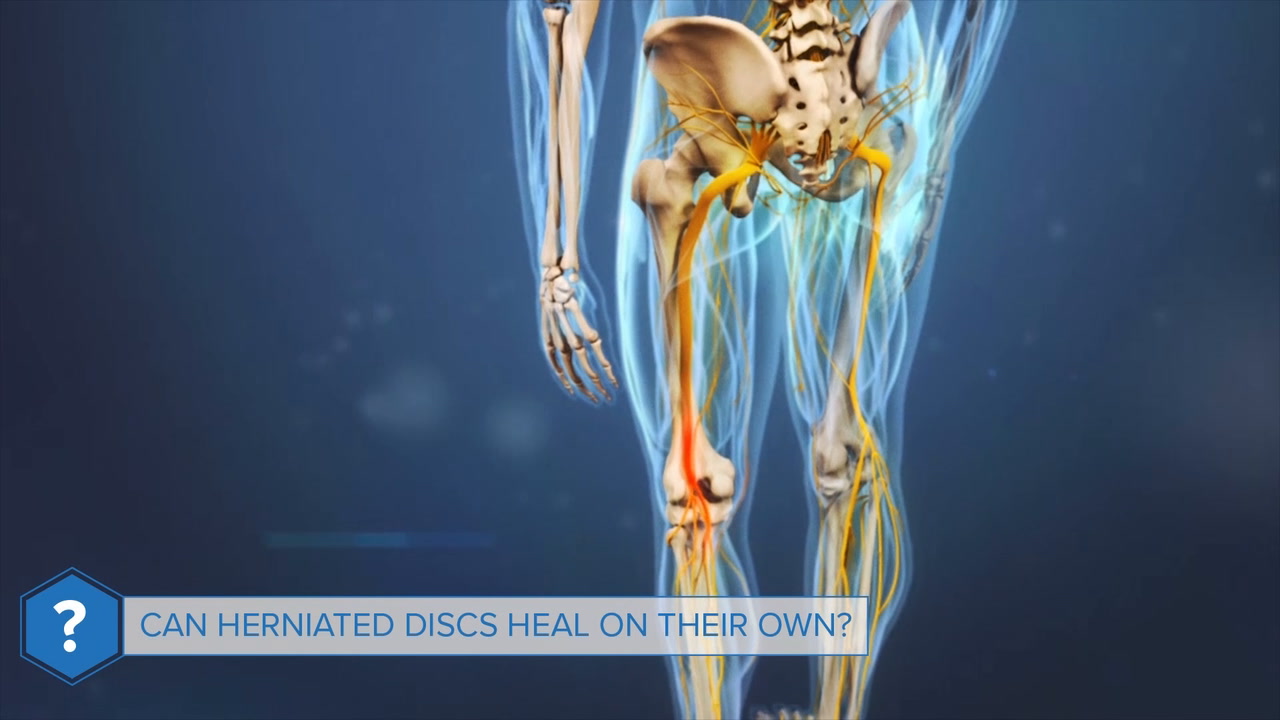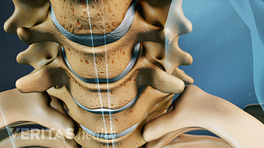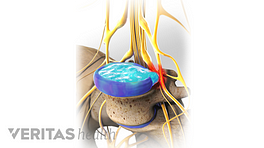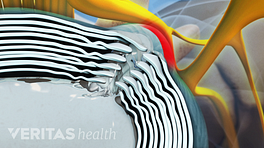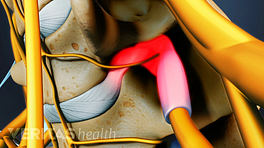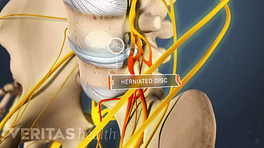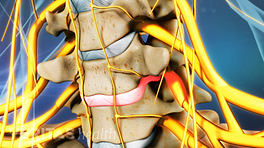Can herniated disc heal on their own? It's true that the symptoms from a herniated disc can subside over time often without medical intervention. But does that mean your herniated disc has healed on its own? The answer is incomplete. Yes, your symptoms may resolve, but that doesn't necessarily mean your herniated disc has healed.
How does a herniated disc cause pain? Before we talk about how your herniated disc symptoms my subside let's quickly examine how a herniated disc causes pain.
Discs herniate either through a rupturing of the outer layer of the disc called the annulus, or through a breaking of the endplate off the vertebral body, allowing the soft gel-like center, the nucleus pulposus, to ooze out. This gel can pinch or compress parts of your nerve sac, which in turn causes pain. The nucleus pulposus contains inflammatory proteins that can cause enough inflammation in a sciatic nerve root in your lower back to lead to what is commonly known as sciatica.
How does a herniated disc get better on its own or become asymptomatic? Three main processes are thought to reduce the symptoms caused by a lumbar herniated disc: An immune response by your body. Your body may recognize the portion of your disc that has herniated as foreign material and attack it, reducing the overall size of the fragment. Absorption of water. The herniated fragment of your disc contains water. Over time this water will be absorbed by your body, causing the herniated segment of your disc to shrink in size. Natural disc mechanics. Some will argue that through extension exercises, the symptomatic portion of your disc can be moved inward toward the disc and away from your spinal nerves.
These factors may help minimize the irritaion of your nerve roots. However, your disc can't be said to have healed because your disc still has a herniation. Your symptoms, however, may subside due to reduction of inflammation near your nerve root.
Managing your herniated disc. If you have a herniated disc, the key question is not whether it will heal in a technical sense. MRI research studies have identified many people who have a sizable disc herniation and yet are totally pain free. So then the pressing question is what kind of treatments and rehabiliation techniques can reduce your acute symptoms and prevent future problems.
If you have recurrent symptoms from a herniated disc, there are known surgical options that have favorable results in improving pain and dysfunction. While early surgical intervention may be recommended for severe pain and disability, non-surgical treatment is usually the first prescribed course of action.
The bottom line is not to worry too much about whether or not your herniated disc has healed. The important matter is whether or not you are experiencing pain from your herniated disc. Thanks for listening, and until next time stay healthy.
In This Article:
- All About Spinal Disc Problems
- 3 Insights for Patients with Disc Problems
- Video: Can Herniated Discs Heal on Their Own?
